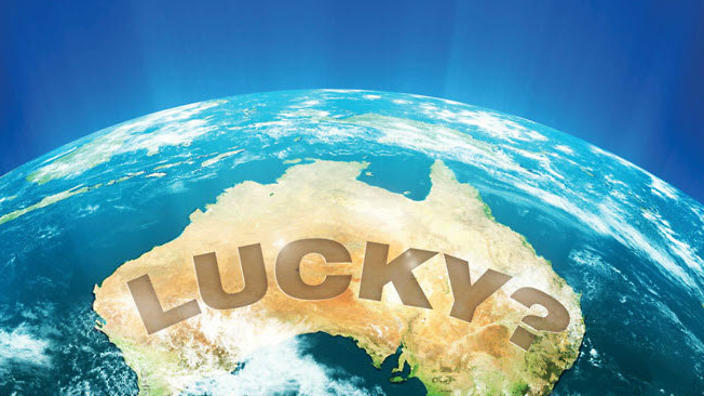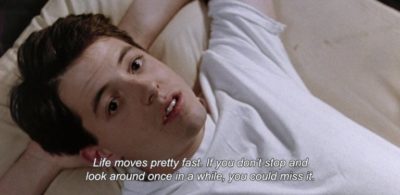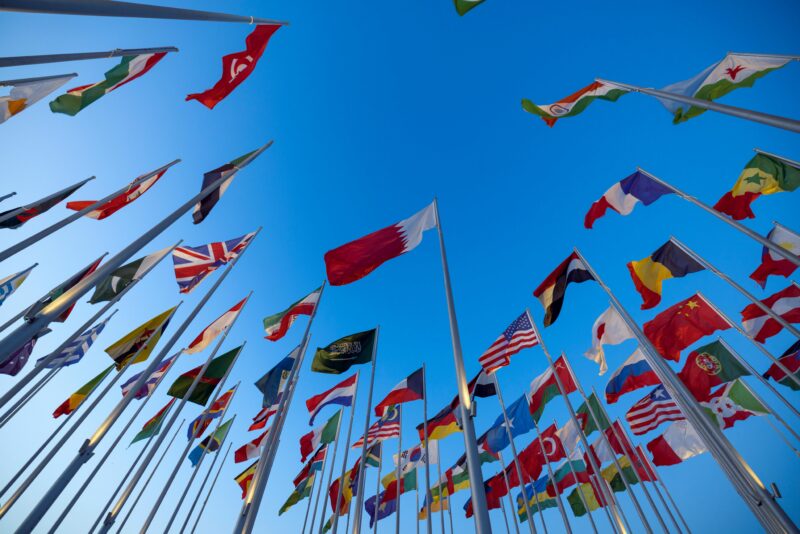The lucky country
What’s not to love about Australia?
“I love a sunburnt country,
My Country Dorothea Mackeller 1908
A land of sweeping plains,
Of ragged mountain ranges,
Of droughts and flooding rains.
I love her far horizons,
I love her jewel-sea,
Her beauty and her terror
The wide brown land for me!”
The best beaches in the world, wonderful sunny days and nice winters. Beautiful landscapes and livable cities and towns. Safe neighborhoods and an easy lifestyle in a stable political environment. Match this with 20+ years of GPD Per Capita and wages growth (More >), we are living in PARADISE!
“Australians all let us rejoice,
For we are young and free;
We’ve golden soil and wealth for toil;
Our home is girt by sea;
Our land abounds in nature’s gifts
Of beauty rich and rare;
In history’s page, let every stage
Advance Australia Fair.
In joyful strains then let us sing,
Advance Australia Fair.”
Advance Australia Fair 1878 / 1984
Our politicians are far from perfection, but at least they TRUMP what the US has to deal with. As Kristi Zuhlke the CEO of Chicago based Knowledge Hound noted (in episode #9 of Real People podcast), her observation of Australia is as a place with far more happy positivity than the US, and how this should really help ignite innovation.
“There’s so much pressure on the US. It’s in the spotlight, and politics, it’s so negative. Whereas Australia, you guys just seem like this happy place, and I think that positivity and optimism and less pressure, may help you guys with innovation.
Kristi Zuhlke
Australians are indeed lucky. Luck has been in the DNA since our pioneering past. The Australian gold rushes in the mid 19th century, and stories of gambling form a big part of our cultural identity, from two-up to betting on ‘two flies crawling up a wall’.

Our love of having a punt and tempting our luck likely also comes back to Australia’s convict heritage of rebellious men and women searching for a better life (More >).
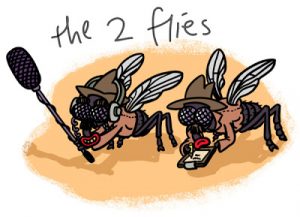
The latest statistics show Australian adults bet almost $11,000 per person annually, making us by far the world’s biggest betting nation (followed in a distant second by Singapore). A total of $209 Billion was gambled 2016/17 in Australia – led by $144 Billion on gaming machines, $24 Billion in casinos, $23 Billion on racing and $10 Billion on sports betting (More > and Here). A huge appetite for luck in a population of just 25 Million.
Life is good in Australia. A very lucky country indeed. ‘The Lucky Country‘ is a line scribed by Donald Horne in his 1964 book of the same name. The full quote is as follows …
“Australia is a lucky country run mainly by second rate people who share its luck. It lives on other people’s ideas, and, although its ordinary people are adaptable, most of its leaders (in all fields) so lack curiosity about the events that surround them that they are often taken by surprise.”
In the last chapter of Donald Horne’s 1964 book ‘The Lucky Country’
While the book coined the phrase that went on to be used as a positive representation of Australia’s ‘lucky’ lifestyle, the intent was an indictment of Australia’s ‘laziness,’ and observation of prosperity more so from exploiting natural resources than innovation. Horne wrote the book as a portrayal of Australia’s climb to power and wealth was from luck (e.g. availability of natural resources) more so than innovation and ambition of its leaders.
As Professor, Neural and Systems Complexity, at the University of Adelaide, Dr Fiona Kerr noted (in episode #11 of Real People podcast) …
“If you think about the mid 60’s when that whole saying of ‘the lucky country’ came about. If you looked at the rest of the sentence, it’s much more around that we are the lucky country, but that luck’s been wasted by fools. Australia’s a really good example of a very rich, and indeed lucky country with natural resources, and so much is here.
It reminds me, I worked in General Motors in the 80’s. GM was a bit fat and lazy and thought ‘everyone will keep buying Holdens,’ and of course they didn’t.”
Dr Fiona Kerr
Australia is an economy largely surviving and thriving on the back of mining and resources, even with the slump in recent years. Much of the continuing strength of Australia’s GDP growth is from mining (More >). Mining is the major contributor to Australia’s exports, and saves us from being a net importer of goods and services, and making Gina Rinehart Australia’s richest person (“Ta Daddy!” – Lang Hancock RIP – More of Australia’s Rich > including, Clive Palmer #20).
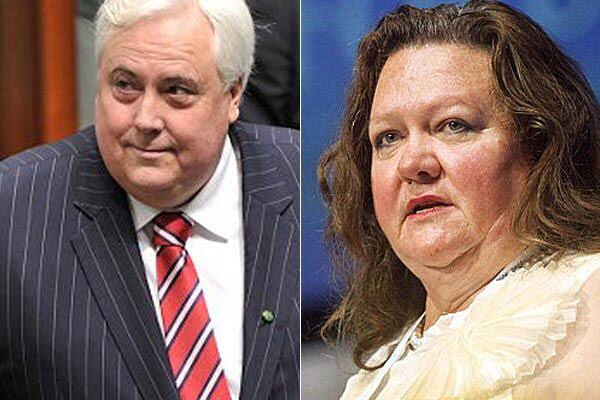
Our three largest goods exported from Australia are iron ore ($61 Billion 2017 / 18 AUD), coal ($60 Billion AUD) and natural gas ($30 Billion AUD – we then import $21 Billion of refined petroleum). Lucky for Australia, the booming growth in the value of iron ore and (unrefined) natural gas has driven our trade surplus – phew! Since 2016 Australia’s trade balance (exports minus imports) has moved to a surplus, driven by mining.

When there is an economic safety net the risk is a culture that sees the ‘luck’ triggering complacency, more so than an enabler of innovation. Australia performs poorly on innovation indexes such as the Global Innovation Index 2018 . This article for BBC also critiques Australia’s ‘luck.’ – Is Australia still the Lucky Country?
We take our luck for granted and get a bit fat and lazy, creatively, in our innovation and leadership. Other parts of the world do not expect a safety net, and have needed to be nimble and agile in order to survive.

(“She’ll be right (often followed by a friendly term of address such as mate) is a frequently used idiom in Australian culture that expresses the belief that “whatever is wrong will right itself with time” A similar common Australia term is “No worries” More >)
In places from Finland to India the need and hunger to be ready to move and to look beyond the domestic market for opportunities for growth and innovation are critical to their survival. As noted by Dr Fiona Kerr …
“If you have a system that is a little bit tipped on its edge, it has to be ready to move. If it’s a bit off kilter, it makes them a lot quicker to move to change. Finland (for example) was being constantly overtaken, and had to be nimble.
If you get a high level of stability (as in Australia) we are like a blancmange sitting on a table. You poke it and it just stays there, and you really have to shove it off the table and hit the floor before it does anything different.
If you’ve got a really highly stable system it tends to absorb things trying to make it move. It just ignores changes, until it has to be shoved. So, (in Australia) we don’t have good radar. If you are too confident you become blind that things are changing.”
Dr Fiona Kerr
Australia risks lacking the hunger and burning platform of other markets. Where countries such as India and Finland are ever outwards focused, with long term plans and confident about their place in the world, Australia can find this harder, as Business Models Inc’s Suhit Anantula explained in his interview (for episode 2 of Real People podcast) …
“Australians don’t understand what our spot in the world is. Not even understanding that we are part of Asia. We connect so much to America and Europe, but clearly we are in Asia. Our closest neighbours are Asians. And, I feel there is a lack, at a high level, of understanding that we are actually part of Asia.”
Suhit Anantula
Even with the comfortable complacency in Australia, we can see the glass half empty, where other places with more turmoil see the glass as more optimistically full. Suhit Anantula reflected how Australia lacks global confidence and has perhaps lost its pioneering spirit, whereas India is striving to regain its global leadership position from back in history.
“India if you go back was one of the biggest countries in the world, and they’re trying to get back to that. Australia grew from nothing almost to where it is. So I think people are forgetting how Australia has become this. India is a very positive conversation. I hear more negativity in Australia than I ever hear in India.
If you look at the papers as to what you would normally talk to people about in India, there is a lot more positive conversations in India with all the problems. With all the good stuff we have, there is more negative conversation in Australia.”
Suhit Anantula
In my interview with UK based, global travelling market research keynote Ray Poynter (for episode #13 of Real People podcast), he viewed Australia as becoming “increasingly peripheral” in a global context. Ray’s observation was that it comes back to our lifestyle and that many Australians simply think …
“It’s a good life. It’s a good climate. Maybe, that’s enough for people. I’ll earn a good living. Job done!”
Ray Poynter
While Australians may identify themselves as culturally pioneering spirits, the scary reality may be that we are more so, as a generalisation, lazy, living in the lucky country, and not taking advantage of the opportunities. We are allowing the rest of the world to leapfrog Australia, when it has never been easier to conquer the world from anywhere.
Australia has a small population of 0.3% of the world’s population. Introspectively isolating our businesses to the domestic market, we are missing the prosperity needed to reduce our reliance on the lucky resources we have been given. Resources that will likely inevitably become less demanded globally. Particularly in their unrefined form as is the typical default in Australia, leaving the value adding to other countries. We risk being a place of freelancing and lifestyle businesses with little if any growth, and likely shrinking. Successful Australian businesses, natural resources and property become increasingly foreign owned. Growing domestic competition from local and overseas businesses, and with this downward pressure on margins, profitability and opportunity to innovate and grow into the future. We risk becoming a mere regional branch of global operations, rather than being a driving force of change.
There is increasing imperative to export disruption from Australia.
Kristi Zuhlke noted in her interview the wonderful, unique and positive lifestyle and opportunity offered to Australian entrepreneurs. Australia’s positive and happy culture helped overcome the negativity and complexity of sustaining and building a business.
“An incredible key to being any entrepreneur, you have to be naively optimistic. Because the thing is you run across negativity everyday telling you why your company won’t last, won’t work, what are going to be the challenges, you need to overcome, and those are impossible, so you have to be this optimist to get through it on a day to day basis. It’s a major asset you guys can leverage to be great entrepreneurs.”
Kristi Zuhlke
The entrepreneurial environment in Australia is most certainly changing. There are many examples of recent successes leveraging the lucky country for global success. The success of our first tech unicorn ($1 Billion business) Atlassian has placed founders Mike Cannon-Brookes and Scott Farquhar in equal #5 position in the 2019 Forbes Australia’s Rich People. Last year Mike Cannon-Brookes purchased Australia’s most expensive house, overtaking the record set recently by neighbour and co-founder Scott Farquhar (More >).

Groups such as Canva are likely to soon follow. The new pioneers are here. Atlassian and Canva are examples of global success stories choosing to remain in Australia and take advantage of our luck.
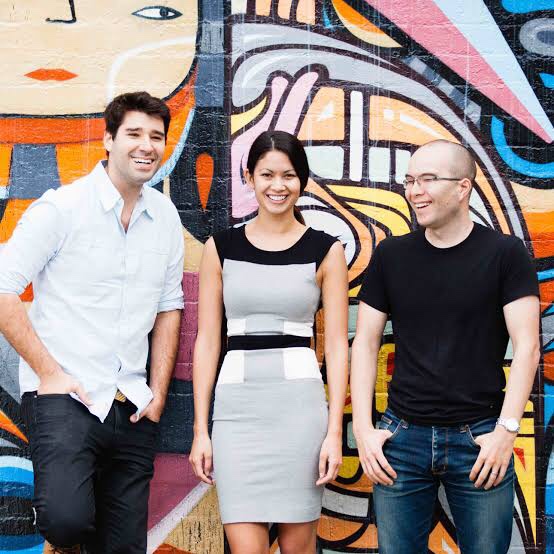
Australia is very much a lucky county, however, it is important we leverage this opportunity into prosperity rather than complacency.
“Success breeds complacency. Complacency breeds failure. Only the paranoid survive.”
Andrew Grove, co-founder of Intel

